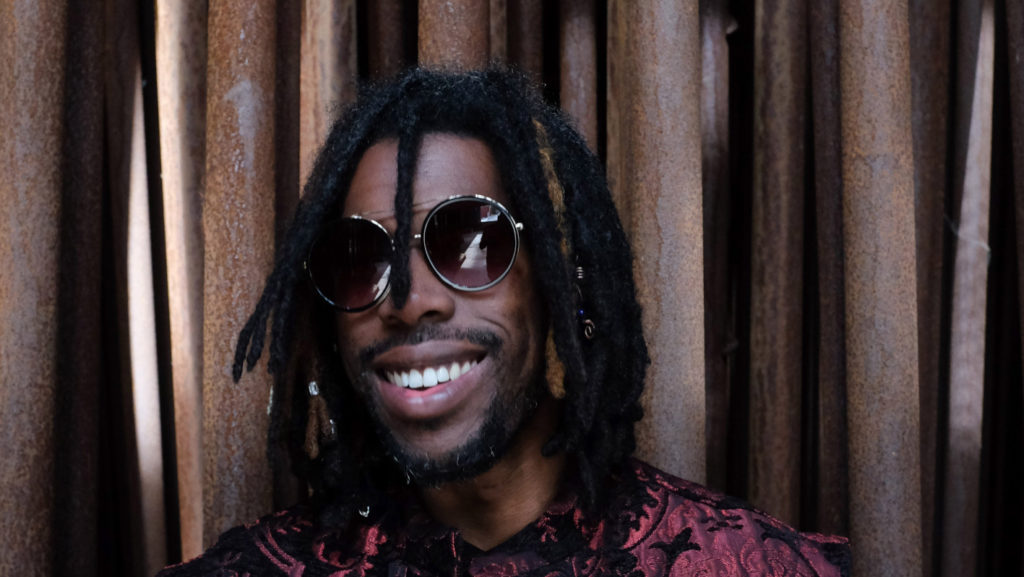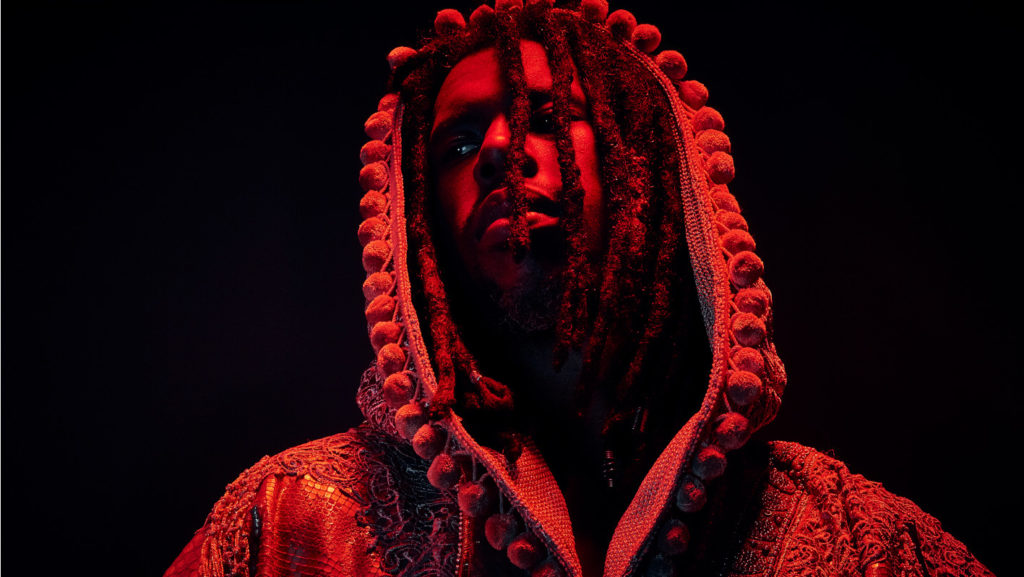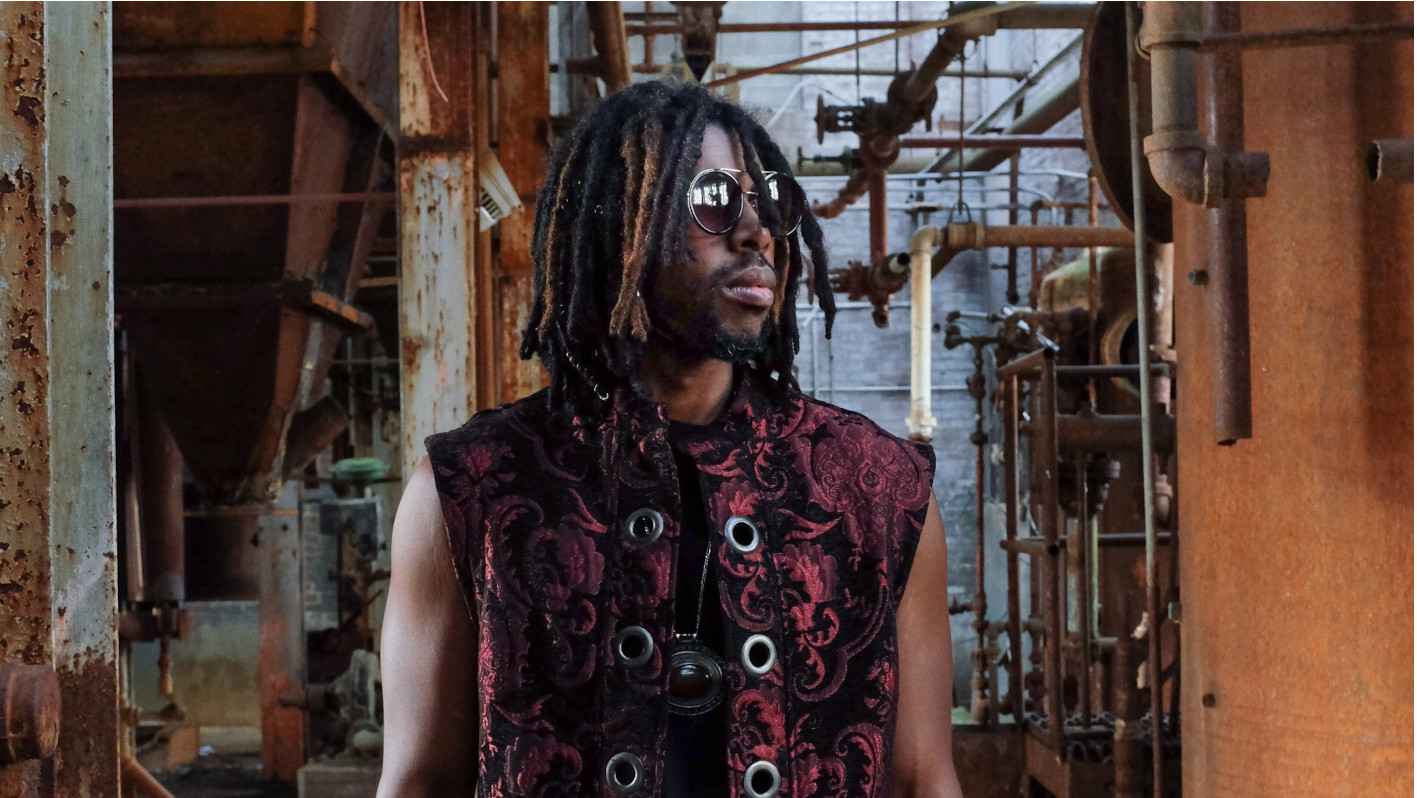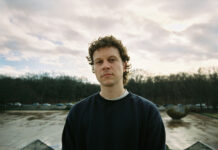Flying Lotus (Foto: Eric Coleman)
Zur deutschen Version des Interviews geht’s hier lang.
Electronic wunderkind, workaholic and consolero Steven Ellison aka Flying Lotus returns to his roots. Two years after the release of Flamagra, with guests such as George Clinton, Shabazz Palaces and Solange, he used the lockdown period to devote himself intensively to the story of black samurai Yasuke.
For the 6-episodeNetflix show, Ellison serves as executive producer and provides the epic soundtrack to the genre-defining anime-series. In the interview our writer Lutz Vössing, Ellison discusses how the anime format has inspired him throughout his career and how he approached the task to compose a score.
What feelings did anime and manga trigger in you as a child?
The thing with anime that struck me as a kid is just the fact that there were no limitations in terms of ideas. It just felt like a space where lots of ideas and things would intersect with beautiful imagery and surrealism. And as well as it was just adult. It was taken very seriously. There was something about that that was very attractive. Especially growing up, watching saturday morning cartoons like Batman The Animated Series. While that was great, it was still aimed for kids. Nothing too crazy happened here. And then once you see this anime stuff that was for adults, you say „Oh my god! These are crazy stories.” A few are actually getting killed, blood, guts, nudity and stuff. It was intense for a kid to see. And also very inspiring to know there was this other art form to express cinematic ideas.
You criticised that there were no black people in the anime series you watched. How did this affect you as a child and what does it mean for you to re-adapt the story of Yasuke, the Black Samurai?
You know, I am one of those people who understand that Japan and its culture is very exclusive. The artists there work in that kind of bubble which is beautiful. You almost don’t wanna mess with what they’re doing. Because: “You guys are great at this. I don’t wanna disturb that.” But, that being said, we’re in a world now which has become a huge melting pot. And, unfortunately, a lot of work doesn’t reflect that. I guess, maybe, Japan is not a huge melting pot. But there are so many black kids who love anime all over the world, the community is growing so much and it was really sad for me to just not see any black characters that kids could dress up as. There are no black characters kids could look up to as heroes. There are no black characters in Dragon Ball Z, there are no black characters who power up and do crazy stuff. And I think part of what we wanted for Yasuke was that moment. We wanted to see him do some things a bit different. And tell a different story. So it was an opportunity to step out of the normal things.
How did you come across the story in the first place?
I heard about it in a passing before. But not much. And you never know what things are rumours and what not. But I think at the time there wasn’t really much out there on him. But then at some point a producer friend brought the project to me and asked if I’m interested. And of course I wanted to be involved.

What was it like to work on the album? To me, it feels like it is going more towards instrumental hip hop with short, Dilla-ish tracks. Was it a conscious decision to go this way?
Yes, it was a conscious decision. I haven’t really heard that sound in any show, especially in anime. So I just really wanted to pursue the unknown in that respect, as well as having something that really captured the spirit of what I was seeing when I was watching the anime.
Was to contrast to your former album Flamagra somehow liberating for you?
I don’t know about liberating. It is more that I like the idea of working with visuals, I like working with pictures. This arena that I’ve been working in is kind of perfect to me. It is a perfect pairing. It’s the kind of thing I’ve always wanted to do from the beginning. So when I have the opportunity to do it, I’m gonna go fully in. But yeah, every project that I do, I want to do the opposite of what I’ve just done. That is just my nature. Flamagra has so many vocals and guests – and then I don’t wanna do that. I just had a couple guests and the people that I’m close to and that’s it. Maybe next time I’ll have a lot of guests again. But I get in the place where I do one thing and I’m like “the last album was really big and loud sounding, now I wanna do something that sounds soft and gentle. Now I wanna do something that is for ‘the beat heads’”.
Your career as a musician began at the cartoon channel Adult Swim where you composed film music. Are you taking a step back to your roots with Yasuke?
„I’d say in some way it is a return to my roots. In a lot of ways.”
I think so. I’d say in some way it is a return to my roots. In a lot of ways. Musically I think so as well. Just my passion right from the start. I always wanted to be part of this. So I guess, yes, it is kind of my roots. When I go on YouTube and see there are all these lo-fi hip hop kids I’m like “Oh, I feel like I was part of the beginning of this thing that now these kids are running with. And I’m not even in these playlists, what’s happening?” (laughter) “What the fuck is going on? I’ve got to work.”
What particular playlists do you mean?
Just like I said: the lo-fi hip hop stations. I feel like the forefathers of that squad and I’m not even in there anymore because there is a whole new breed of kids doing stuff and I think it’s awesome. But I also miss that world, too. It was a perfect storm. The lo-fi scene loves anime. So I kind of wanted that as a love letter to that community as well. I think that’s probably a bit of it.
Let’s talk about the music. Why did you focus more on synthesizers than on jazz? Shinichiro Watanabe’s anime often have jazz in their score?
One thing was for sure. As soon as I did anything in this anime world, people were gonna just start making comparisons because that’s all they do. They just wanna compare: This is a hip hop thing, so this is like Samurai Champloo. It’s the hip hop thing, so it’s like Cowboy Bebop or Afro Samurai. I know that voice on the internet. It is really annoying. (laughter) So I wanted a sound that I knew that I hadn’t heard in anime before. I’d just go for that! Whether people wanna compare or not. This shit is absolutely different to all the other stuff that has been dropped in anime. So I wanted to pursue that. Just try to switch things up a little bit.
Haven’t your albums always kind of been soundtracks to movies, albeit ones that haven’t been made yet?
In some ways. I definitely get inspired by films and video games in my work. A lot of times that stuff is in the background when I’m working. But actually, from now on, I will probably work a little more specifically on a soundtrack to a movie that may exist already, but I won’t tell anybody what movie it is. (laughs) Or maybe I will. But I do like the idea of working in this way. It feels really natural for me and my style of doing things.
What music inspired your work on Yasuke besides obviously Vangelis? I can hear some Pink Floyd for example…
Yeah, definitely, „On the Run”! I was messing with the synthesizer. And the arpeggio came out, that “dodeldudeldideldo”, and I was like „No fucking way”. You’re serious? For real? Alright, I guess it’s where we’re going! Let’s go. So I just did it and then it really worked. And I was like “that could be such a cool vibe as in an action scene”. I was just really juiced on it. But, aside from that, Jean-Michel Jarre was a huge inspiration. Like I said, the lo-fi scene, obviously Dilla-stuff. And (thinks): I was listening to a lot of Japanese percussion and Japanese music in general. And you know, someone else I didn’t shout out enough actually was Ryūichi Sakamoto. Yeah, I worked with him a bit. It’s so funny, because I learned so much from him. Just by his energy. Not even musically. Just by his sensitivity towards silence. And his sensitivity towards space and sound. And I really tried to think about that, especially when I approached a lot of the melodic stuff.

„I thought it was like method music making.”
Do you have all the ideas in your head or do you do lots of research before?
For the show I did like 200 demos for different parts and different scenes. Obviously not everything worked and some things might go into another show. Who knows? But the way I was working was interesting. Because I wouldn’t always work exactly with the pictures. Sometimes I would, but sometimes I would just watch a scene and walk away and try to carry the energy that I felt with me throughout the day. It is so weird. I felt such a connection. I felt like I was Yasuke this whole time. I felt like my music was helping him win these battles. You know what I’m saying? (laughter) That’s how deep it got. I watched a scene, then I went to the gym and worked out and thought about it. And then I’d go home and just write a piece. And somehow it would fit right in the theme. When I watched the show it was interesting, too. I didn’t watch anything beforehand. I watched everything in real time. I worked kind of linearly through the show. I tried not to get ahead of Yasuke emotionally. I really tried to be in the same thing as him. It was a really interesting process. I maybe feel like how actors feel when they’re working on a film. Like method acting. I thought it was like method music making.
How does that work?
Sometimes I would work on a picture. But I have my palette of synthesizers around. And I have a buddy, Chris Fishman, a great musician. And if there is something that I can’t play, I can sing it to him and he can play it out. There are some piano moments that I couldn’t play myself. But he was able to. It felt like leading the charge for this thing to happen. I was trying to make his world more magical and more interesting.
How do you feel when you watch the final show now?
I love it. I’m really proud of it. There are things that I would do differently if I were directing it. But I am just so proud of all the work that went into it. I wish we had more episodes this season. I think if we had ten episodes [Editor’s note: The first season of Yasuke consists of six episodes] we’d be able to flesh out more ideas. But hopefully we can do more. I would love to get some more stuff in there.
The main theme has this tension between melancholy and optimism. Does it also express your own character or is it just the main actor’s psyche that you try to express?
I think it’s the spirit of the show and of Yasuke. Unfortunately he is kind of a cursed person. But just because you are cursed, it doesn’t mean it is all bad things happening to you. Of course good things are gonna happen to you, too. But cursed persons have a hard life. Nothing comes without lots of pain, blood and sacrifice. And I think that is kind of like Yasuke. He got to escape very terrible things and live a very crazy life. But at what cost? So, to me there is this pain in all the music. Whether it is optimistic or not. There is always this hint of like: „Man, I’ve been through some shit.” (laughs out loud) You notice it in the music. You feel the weight of it, of this journey.
And you just spoke of a potential second season. is it like to work with Netflix? Do they have some kind of default mode?
Netflix has been great. My relationship with them has been amazing. We loved working together so far. I think a lot of that stuff, unfortunately, comes down to numbers. I think it comes down to algorithms and analytics if we get to do more episodes. But I would love to do this or another show or whatever, or both, two shows at the same time. (laughs) I feel like anime and being in this space made a lot of sense for my fanbase, too. It didn’t feel like a stretch from my fanbase to watch the show. Also I made a bunch of new fans in the process, too.
When you gave an interview in 2008 you seemed extremely busy. Did things change during the pandemic?
I am still busy. (laughter) I was glad to work on Yasuke during the pandemic. That was the best thing for me. Because if I hadn’t been stuck at home, I don’t know whether I’d have been able to focus as intensely on a show. If I had distractions and my people wanna hang out and stuff. It was like nobody wanted to hang out, nobody wanted to do anything, you couldn’t go anywhere. The world was depressing, Trump was running shit, and it was awful here in America, and I had an escape. I could go to ancient futuristic feudal Japan for a little while and hang out there. And I thought it was the best thing to have during a pandemic. (laughter)

Do you even miss the live shows or do you prefer to be the nerd at home-office anyways?
(Loud) Why I gotta be a nerd, bro? (laughter) Nah, I’m just kidding. You know what: I actually love to play for people. I never get tired of playing for people. That I have a deep passion for. I don’t have a deep passion for early flights and hangovers and layovers and customs. (laughter) I didn’t miss that part. But of course I miss playing for people. I wish I could do that without bullshit. (laughter) But that’s the price, right? It’s a beautiful thing to share the work with people. Of course I miss it. But I do also enjoy being at home. I am grateful I have had some time off so I could do some stuff in my personal life and grow and learn. I spend a lot of time learning stuff which I wouldn’t have been able to do otherwise. So I’m gonna leave this thing a better human being which I am really glad for. I might not be in the shape that I was before the pandemic but I am not in bad shape. (laughter) But I am also a lot smarter.
So did you start working out during the pandemic?
No, actually I was working out before. When the gyms closed, it kind of slowed me down. You just start snacking all day and ordering delivery and not travelling and going anywhere. Not walking around and stuff. I am not as fit as I was, but I’d still fuck you up! (laughs out loud)
We just talked about playing live shows. Are you planning to take the Yasuke-soundtrack on the road or is it a confined project to the netflix show only?
It is a funny question. Because as a tour, I don’t think I wanna do it like that. But it will be part of my show experience. You will see some Yasuke imagery and things. So, I don’t think there is gonna be a tour though any time soon. I think I’m gonna just do one-off shows for a while.
Now that you contributed this score to an anime series, are there any other childhood-dreams you want to fulfill? What can we expect from you in the future?
Well, I think the next big milestone for me would be seeing the Marvel or DC logo or one of those. (laughter) Or HBO. I wanna see HBO and Flying Lotus. That would be like „He did it. He did the fuckin thang. That’s what he wants to do. That’s it.” I mean, I am not mad tho right now. I am already living my dream.
One part of the cover story from 2008 was that you were quite eager to go home again in order to play GTA. Would you consider pop culture as your main source of inspiration?That’s an interesting question. It is definitely an inspiration. But I do feel like I always pull from my real life first. Because my real life is pretty deep. (laughter) I don’t ever have to pull too far. My homies, my family – my shit is deep. I always start there. And everything else is kind of second. But there are parts of Yasuke where I could say: “Yeah, that’s the homie. I put that thing in there that my friend does.” Or whatever. It can be a great space to release things from life.





